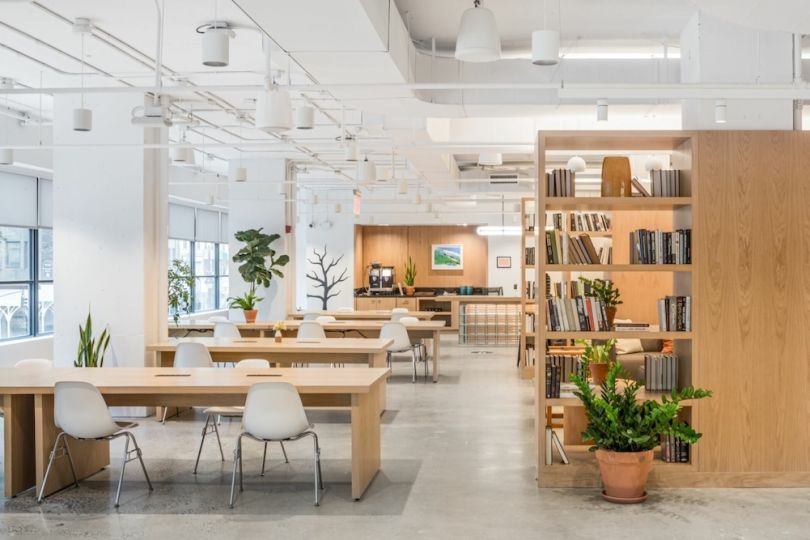
Despite pandemic-related challenges faced by companies across the globe, 2021 was a huge year of growth for America’s entrepreneurs. As many workers participated in the Great Resignation, Americans quit their jobs to start their own businesses in 2021 more than ever before. According to Vox, 5.4 million people filed to start new businesses in 2021.
Starting a business isn’t easy, though, especially during a global pandemic. Startups, entrepreneurs and nonprofits can’t succeed on ambition alone. That’s why WeWork launched its WeWork Growth Campus program in New York last month, a $25 million backed resource initiative aimed at boosting economic recovery.
After success in its first location, the program announced today it is now expanding to Boston, Chicago, Los Angeles and Washington, D.C.. WeWork has committed an additional $35 million in space and resources for startups, entrepreneurs and nonprofits in selected cities. Members of the program are now able to pick from 800 subsidized offices in 13 locations across the country in addition to 11 existing locations in NYC.
WeWork Growth Campus Regional Locations and Investments
- Boston, MA: $4.8 million in space at 200 Berkeley and 200 Portland St
- Chicago, IL: $8.8 million in space at 0 W Kinzie, The National, 330 North Wabash, 220 N Green St., and 515 N State
- Los Angeles, CA: $5.2 million in space at 222 Pacific Coast Highway, 1601 Vine
- Washington, D.C: $16.3 million in space at Metropolitan Square, 1775 Tysons Blvd, 200 Massachusetts Ave NW, and Midtown Center
WeWork Growth Campus members will also have access to the company’s virtual accelerator and networking program, WeWork Labs to receive expert advice, support, and member benefits and discounts.
“As 2022 looks to be another record year for new businesses, we couldn’t be more thrilled to expand WeWork Growth Campus across the country and do our part to help support American innovation, entrepreneurship and service,” Melinda Holland, president and COO of The Americas at WeWork, said in a statement.
In order to be eligible for the program, applicants must be either an early stage startup, a nonprofit or social impact organization. All applicants must be based on one of the participating cities. Early stage startups must also be no more than five years old, have less than 100 employees, be in the early stages of funding, and be pre-revenue or have a turnover of less than $2 million.




